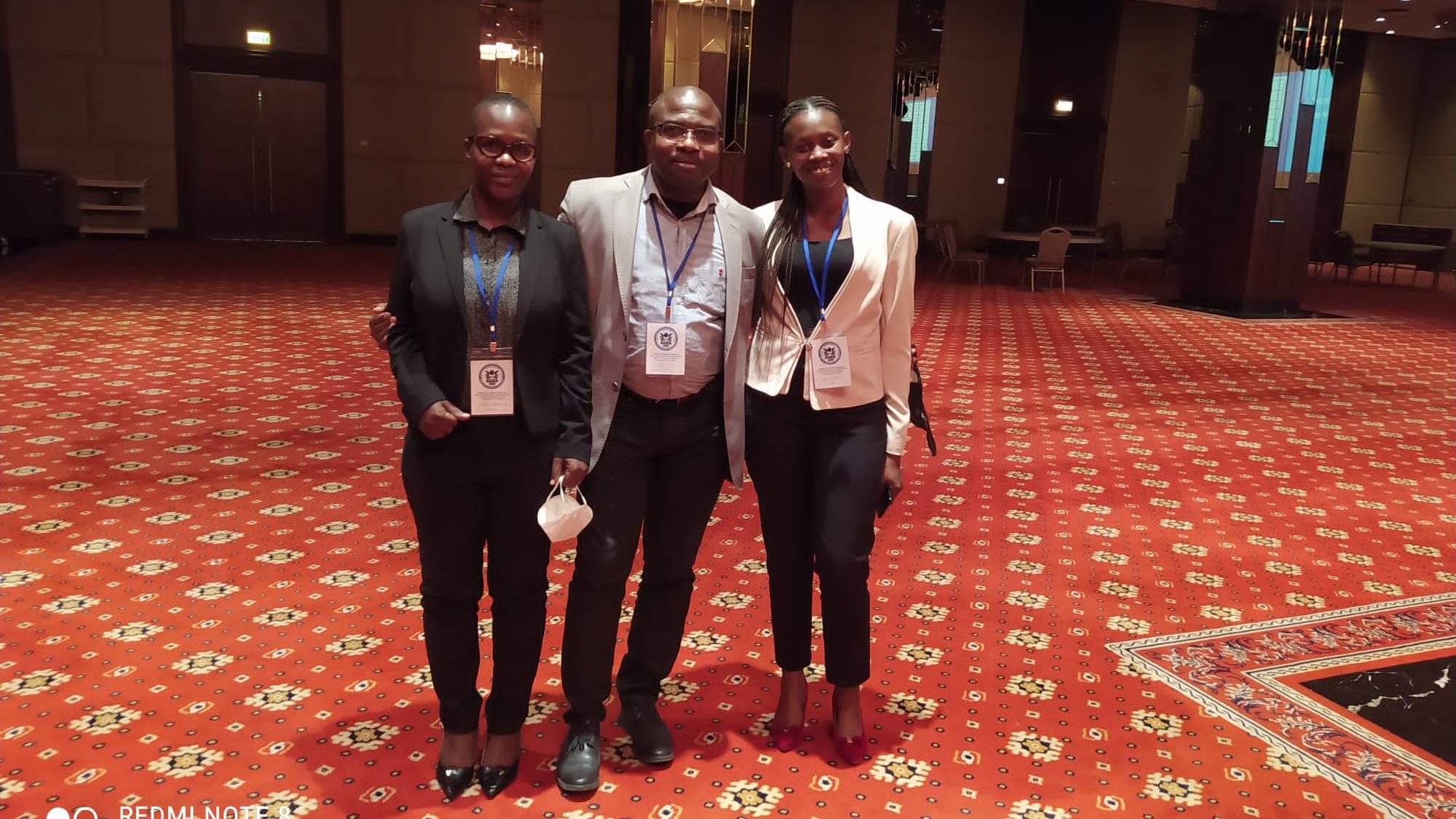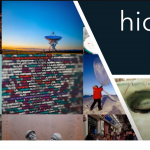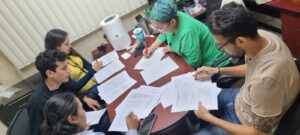
Why improving gender equity in research matters in Uganda
We sat down with Sarah Nabachwa from Mbarara University of Science and Technology, Uganda, to discuss gender equity in the Ugandan research landscape. Bold, outspoken and unapologetic, Sarah is the coordinator in the West for the Ugandan Gender Equity in Research Alliance (GERA). The GERA is part of a series of interventions under the Global Platforms for Equitable Knowledge Ecosystems (GPEKE). GPEKE seeks to build stronger and more equitable research systems both between North and South, and in three focus countries: Uganda, Ethiopia and Cambodia. Interview by Nyasha Musandu.
Q: Tell us a little about yourself and your involvement with Uganda’s Gender Equity in Research Alliance?
A: Let me give you my background, for the first seven years after joining the university I was the only female in my faculty and I got abused a lot because we have these gender norms and people would say if you are female you have to do certain things. When it came to meetings, I always had to be the one to take minutes, I’m not good at taking minutes. I am a lecturer like everybody, but I had to be taking minutes and then I would have to spend an additional hour writing up these minutes. I hated it and I didn’t know how to say it or who to speak to; all my bosses were males.
Fast forward, I started growing out of my shell and started to speak out as well as ensure that my students didn’t get abused either by lecturers or anyone. I started fighting back.
I must say though, for some time I was biased, I would talk about gender, but it was always for the girls. I was only protecting the girls. When I joined the GERA, it actually balanced me out. It made me realise that gender is not only about women, yes you are a lecturer, and yes there is a need to fight for the girls but, hello, there are boys and they also have issues that need to be heard. Over the past year, I have changed my strategy, I have calmed down a little and realised that gender is not about fighting the men; they are having challenges themselves.
There are so many issues around gender. Since I starting engaging around gender equity, I started to get some balance that it’s not only about females, and these issues are not affecting only us. We need to get to the reality of these issues and the problem is there are these gender norms that we need to break.
Q: What is the mission of the GERA and how many universities are involved?
In the west [of Uganda] we have several schools, some of them are universities and some of them are extensions of other schools. There are 15 institutions currently involved in the western GERA.
We intend to do a lot of research around gender norms, what are the stereotypes, what brings them around and how we break them.
We created a WhatsApp platform, and we have conversations on the platform related to gender. For example, someone will upload something related to gender and we discuss it. From that discussion you may identify something that resonates with you and say “oh my, I think we should start writing a paper on this area”. We came together and decided on two papers.
Q: What are some of the topics you have decided to focus on as research questions?
We want to do research on domestic work, typically looking at women here in the western Uganda and some of the expectations.
Both men and the women go to work in the morning, but when they get back home the woman is supposed to take on the role of the woman again. We are supposed to do everything a woman is supposed to do but when it comes to money should we be sharing the money equally? We wanted to do a qualitative study, to see if the woman can be paid for that extra work? Should her money not be hers alone, because she has done all she is supposed to do?
It became a research question because when it came on our platform everybody was fighting about the money and where it was supposed to go. So we decided to take it on. There must be something we can do, go into the field and do actual research and figure out what the thoughts of the folks in our neighbourhoods are. That is one of the ideas we are thinking about. We need to dig into the thoughts of the men and women in our communities.
Q: From a systemic perspective, what gender equity challenges are faced by researchers in Uganda? What are the issues you think are key and would like to delve deeper into as the GERA?
A: One of the key gender equity issues in research is around grants. I see unfairness sometimes. When you write a proposal for a grant, even with senior female researchers, there is that stereotype, they feel they need to have somebody (a man), as if they cannot do it themselves, as if the girls cannot come and sit and write a grant and win it. It’s like they have to bring this man to be part of the team so that they can win this grant.
I haven’t seen many women winning grants without fronting a man. And even if you are doing all the donkey work you become an ‘et al’.
Q: With the emergence of GERA, how has gender equity been received within your institutions? Have people bought into the idea?
A: I think the word ‘gender’ has not been packaged well. In Uganda the term gender means women and the men will not come for anything around gender. When you talk about women’s issues, the men tend to stay away. However, gender is not women. For us to have gender equity, men need to be on board, they need to be with and for us.
But I am so glad that in the GERA we have male team members who embrace gender in an unapologetic way. We need to get more male champions on board.
Q: What is your vision for the GERA going forward? What does success look like?
A: The GERA should enhance gender studies. Even an individual like me who is into marketing can start to bring an aspect of gender in my research. I think when we tap into other resources from other teams, and even do collaborative research across countries. The platform should allow us to identify other resources elsewhere and leverage networks.
We can do more research and more outreach and reach younger audiences such as O-Levels because that is where the gender issues start. By the time they reach university the gender biases are firmly in them from their childhood. In five years we want to go beyond just shaping the ideas of lecturers and researchers but really reach younger audiences. That is the vision.
Q: Why is it important that GERA reaches a broader audience and what do you hope this reach and diversity will allow you to achieve?
At the end of the day, it’s about gender equity. When we achieve gender equity there are so many benefits. I see empowerment and women who are confident. I see that woman who is confident to change policy in government, who can make decisions that affect her own life in health and education.
We want to see women doing research on sensitive topics. I have seen women are not daring enough to enter some zones. There are some topics you cannot explore when you are a woman researcher, you either have to bring a man to shield you or you cancel the research. If we achieve gender equity and gender equality, the global goal is having a more productive economy because with more women on board there are more job opportunities, more competent individuals, more healthy populations. We will see a happier society. That is the bigger goal for me. If we can take off and reach as many people as we can there will be a spill over effect.
Cover photo: Sarah Nabachwa (left), at the AGBA Conference held in Istabul, Turkey in August where Nabachwa presented a research paper and received an award. She is pictured here with another award winner Ester Agasha, a lecturer at Makerere Univerity Business school, Uganda, and Associate professor Lukman Ayinde Olorogun, a lecturer at Istanbul Gelisim University, Turkey, and one of the session chairs.

 Previous Post
Previous Post Next Post
Next Post


